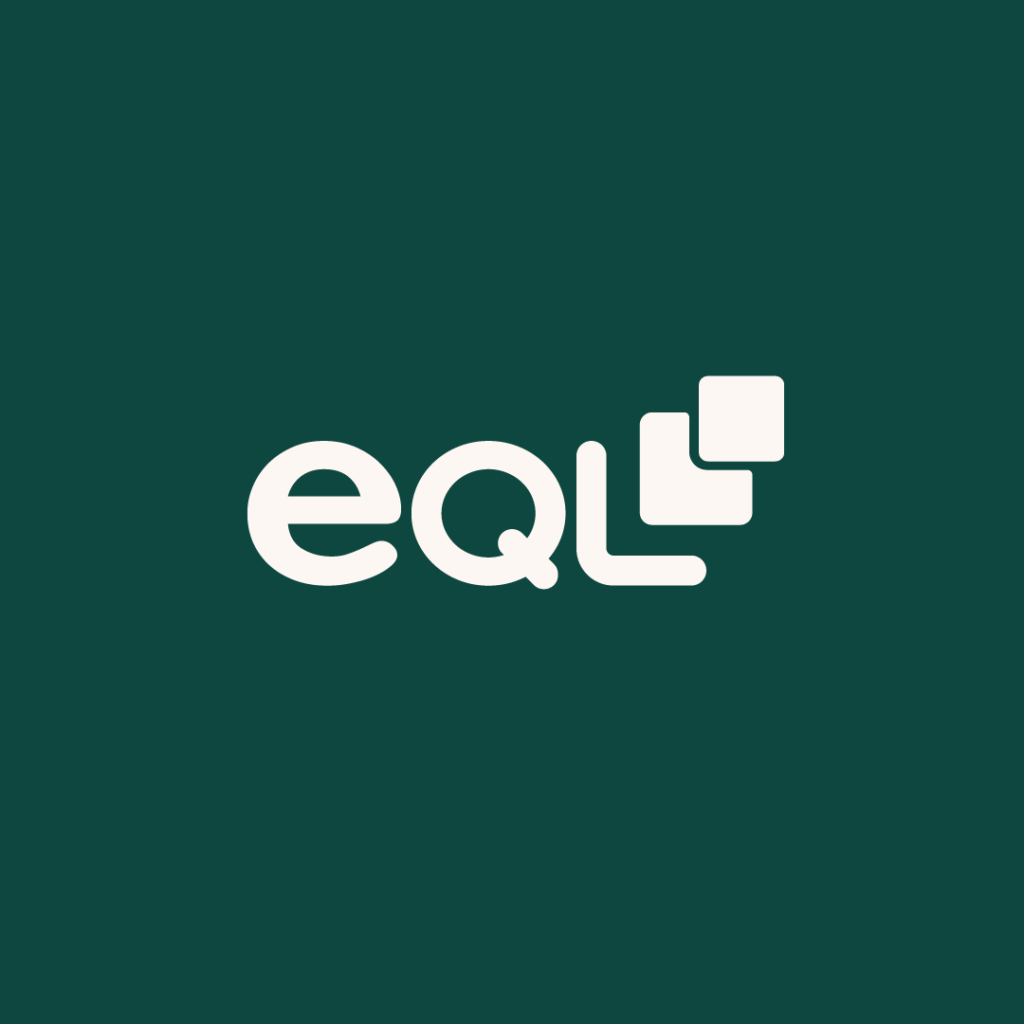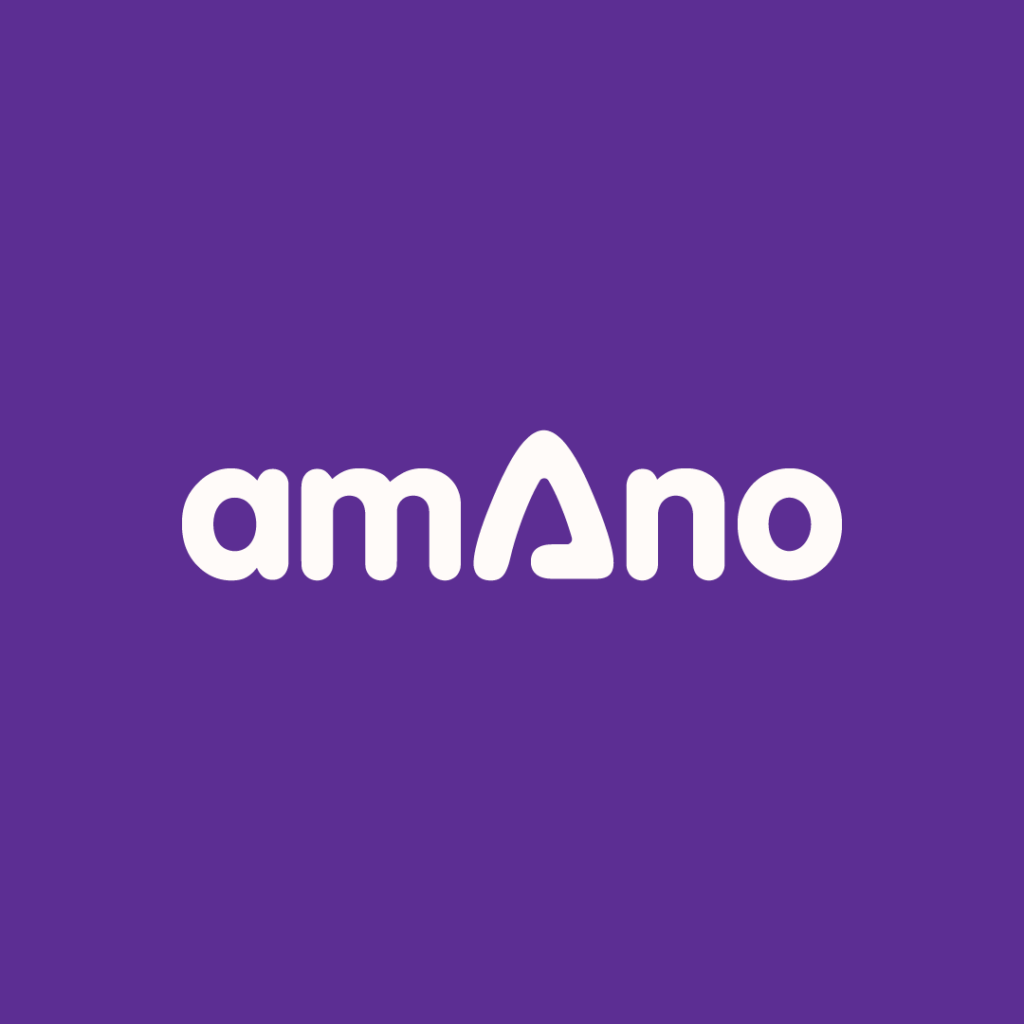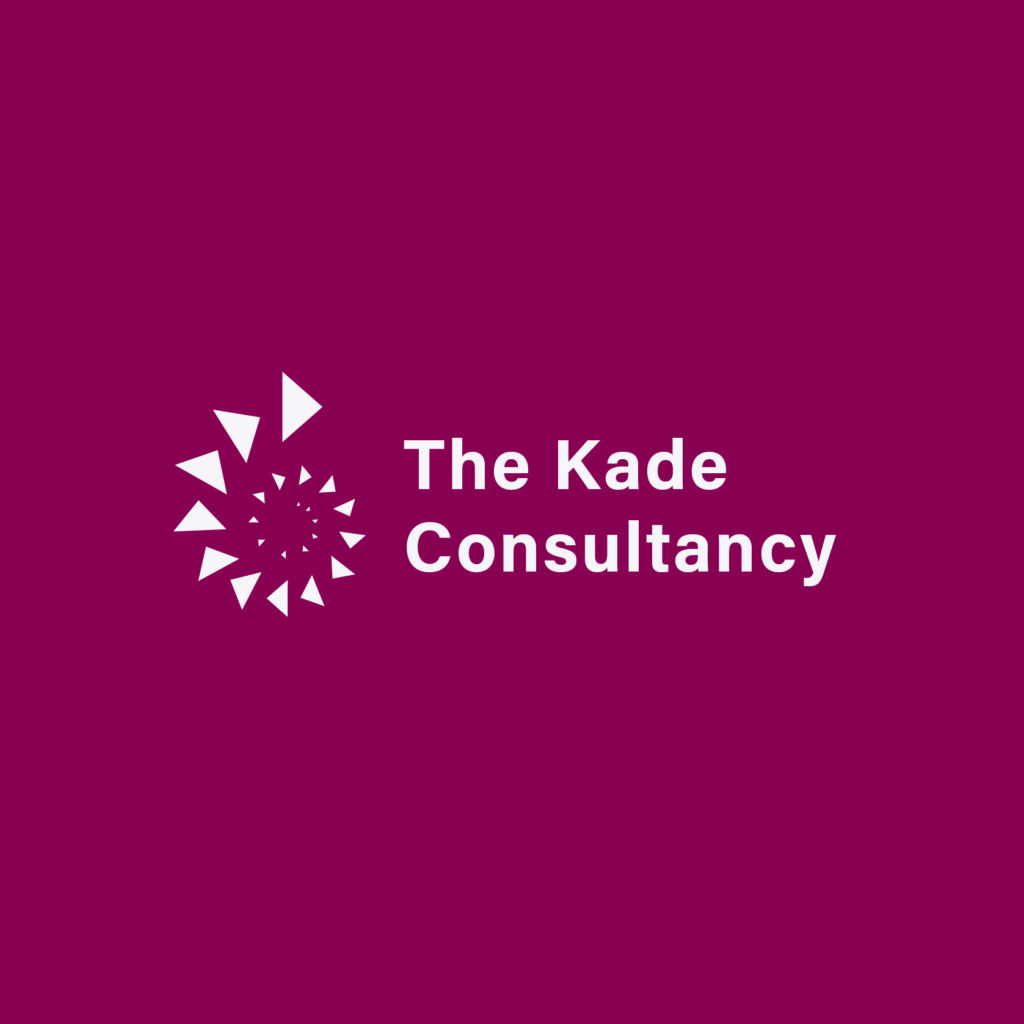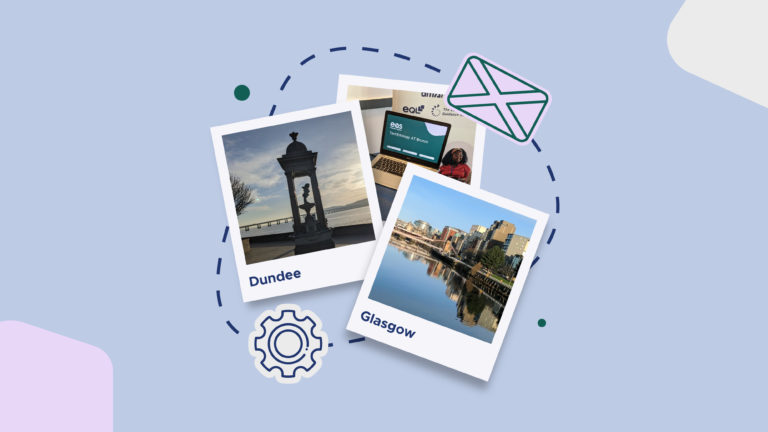
Swapping Webinars for Winter Sun: A Scottish Adventure
It’s great to get in front of ‘real’ people at an in-person event and have discussions that may not be as easy to have online during say a webinar of over 100 attendees.

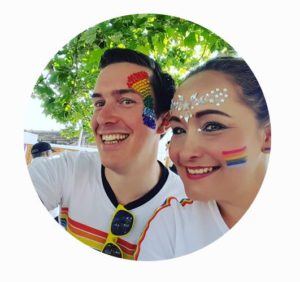
Whatever your sexuality, ethnicity, gender or disability you should feel empowered to be able to bring your full self to work. When I learnt about National Inclusion Week I wanted to write a blog about my experience, as a gay man, in the workplace. This is by no way a closed discussion as I’m aware my experiences and views will probably differ to those from people of other sexualities, races, genders, disabilities and even other gay men. I have written this with the aim of opening up discussion.
This week the 10th annual National Inclusion Week takes place. This initiative was created to foster greater interest in and understanding of inclusion. The Chartered Institute of Personal Development (CIPD) website states ‘inclusion is more than simply ‘including’ diversity – it is about individual experience and work, and creating a positive environment in which everyone can influence, share knowledge and have their perspectives valued.’ With that in mind it makes sense that when a team is inclusive and diverse, they will outperform their peers by 80%. Everyone feels comfortable enough to bring something to the table as they are able to bring their full self to work.
So, what does it mean to bring your full self to work? For me, quite simply, it’s not hiding any part of who I am outside of work when I am in work. I am pleased to say I currently work for a company where this is the case. However, over half of LGBTQ+ employees are not open to their current supervisor about being LGBTQ+. During my 20 years in employment, I have experienced homophobia at work on a couple of occasions, one of which was dealt with brilliantly. This isn’t unique to me. 67.5% of LGBTQ+ employees reported hearing negative slurs, jokes or comments, about LGBTQ+ people at work. Experiencing homophobia in the workplace prevented me, for a short while, feeling as if I could influence, share knowledge and have my perspectives valued. As I have said, I am happy now that is no longer the case. Ahead of National Inclusion Week I started to consider how has eQS created an inclusive workplace and made me feel like I can bring my full self to work?
Research has found 39% of job applicants have turned down a job due to a perceived lack of inclusion at the organisation involved. Therefore, inclusion needs to start during recruitment. In interviews I will always work my sexuality into conversation. I’m aware how strange this may seem to someone from the outside. Would you disclose which hand you write with or your natural hair colour to a potential employee? Probably not, so why make a conscious effort to disclose your sexual preference? Because I want to make sure I don’t have to hide any part of who I am outside of work when I am in work so what better way to try that out than in the interview? An inclusive workplace won’t be phased by this information and nine times out of ten that has been my experience. A workplace that lacks diversity could be losing out on potential new employees with a recent survey finding the lack of diversity in the workforce would cause 41% of LGBTQ+ job seekers to not apply to a job at a company.
There are several processes businesses can undertake to ensure they are being inclusive within their recruitment process. One of these is blind applications. This is where CVs are provided with no identifying factors such as name, age, race or gender. There is no information included that isn’t related to the candidates working capabilities. This process ensures unconscious bias, social stereotypes about certain groups of people that individuals form outside their own conscious awareness, does not prevent candidates from progressing through the recruitment process. Research has found hiring chances can increase up to 46% for women taking part in blind applications.
The CIPD states one aspect of managing inclusion and diversity is ensuring initiatives and policies have the support of the board and senior management. Over the years I’ve marched in several Pride events from the historical London Pride which is attended by over a million people to the very first Tunbridge Wells Pride which was attended by a thousand people. Each time it has been a fantastic experience however I was never marching with my workplace. Due to the pandemic, this year was the first time Pride had taken place in Newcastle since I started working at eQS back in March 2020. As soon as I heard it was going ahead, I wanted to suggest eQS took part. I sent an email to our CEO, Andy Gough, at 16:22 one Friday afternoon explaining why I felt this was something we should do. By 16:31 Andy had replied saying he was “100% behind this and thinks it would be a great event for us to support.” Therefore, on Saturday 23rd July team eQS took to the streets of Newcastle, complete with rainbow flags and face paint, to march in Northern Pride.
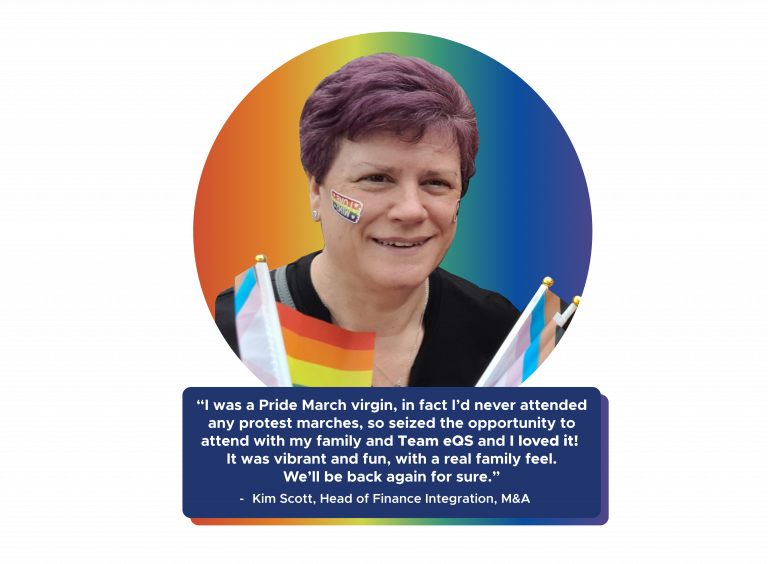
I wasn’t sure what to expect from Northern Pride but it did not disappoint. It was fantastic to see large amounts of people not just attend the march but also supporting it. A particular highlight was seeing the staff of Primark dancing in the shop window as we marched by, encapsulating the mood of the day.
I work for a company where I feel comfortable bringing my full self to work every day. Sadly, not everyone is in that position. 29.8% of LGBTQ+ employees reported experiencing at least one form of employment discrimination. Among disabled people in the UK, Autistic adults have the lowest employment rate and ethnic minority employees hold only 1 in 16 top management positions in the UK. Stats like these highlights why National Inclusion Week is such an important initiative. With research showing inclusive teams make better business decisions up to 87% of the time why would you not want inclusivity within your team? I’d love to hear your views and personal experiences of inclusivity in the workplace. Is there a process or initiative you’ve experienced that I’ve not mentioned? How do you ensure your workplace is inclusive?
Share

It’s great to get in front of ‘real’ people at an in-person event and have discussions that may not be as easy to have online during say a webinar of over 100 attendees.
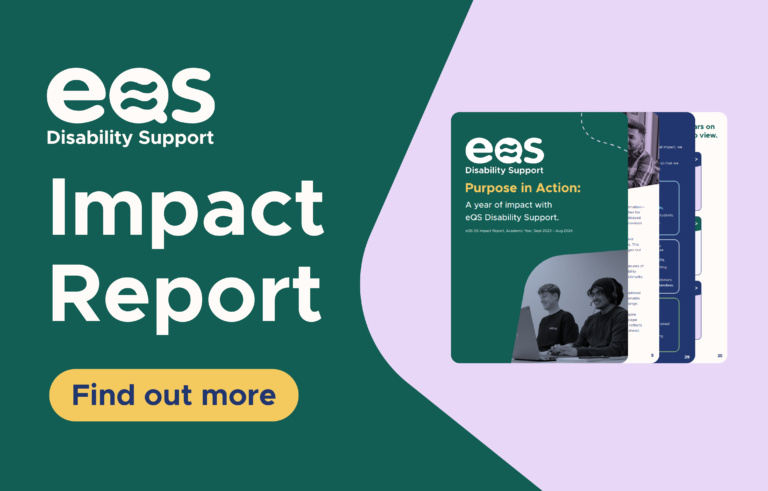
Purpose in Action: A year of impact with eQS Disability Support. eQS DS Impact Report, Academic Year, Sept 2023 – Aug 2024. Download the report. Our year in numbers Here’s

The release of our first-ever Impact Report is our statement of intent. We invite you to explore the report, share your thoughts, and join us in shaping a more inclusive future.
You can find us on LinkedIn for all the latest news, thought leading articles, events, career opportunities and more. We have two LinkedIn pages in the eQS Group and we would love it if you followed them all, but feel free to head to the page most relevant to your needs.
Necessary cookies are absolutely essential for the website to function properly. This category only includes cookies that ensures basic functionalities and security features of the website. These cookies do not store any personal information.
Any cookies that may not be particularly necessary for the website to function and is used specifically to collect user personal data via analytics, ads, other embedded contents are termed as non-necessary cookies. It is mandatory to procure user consent prior to running these cookies on your website.
